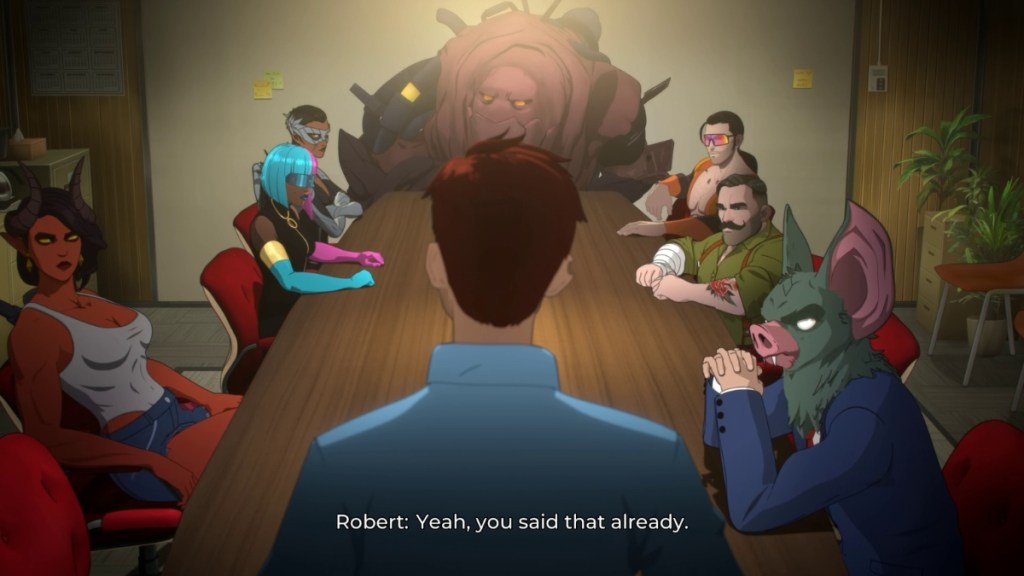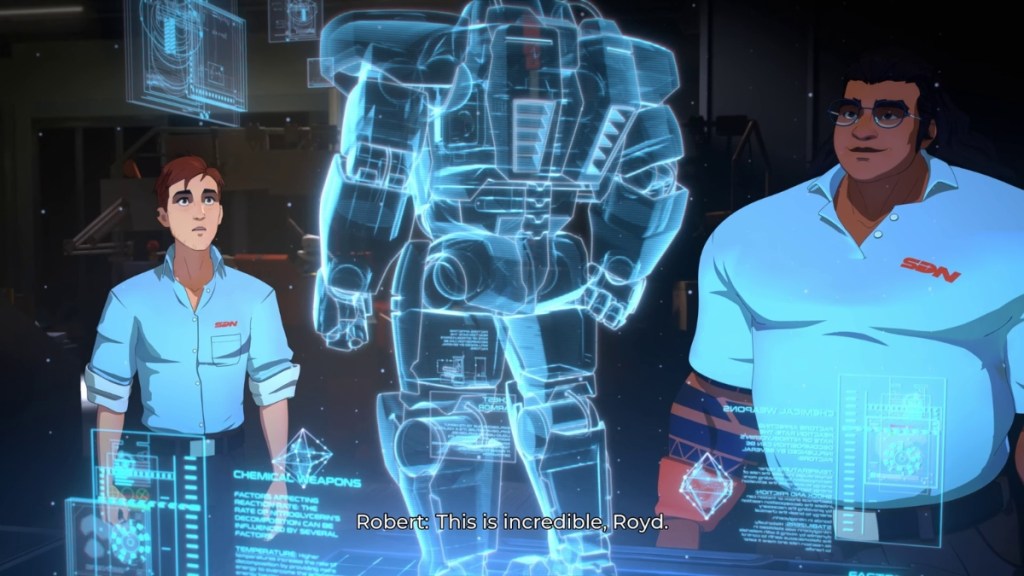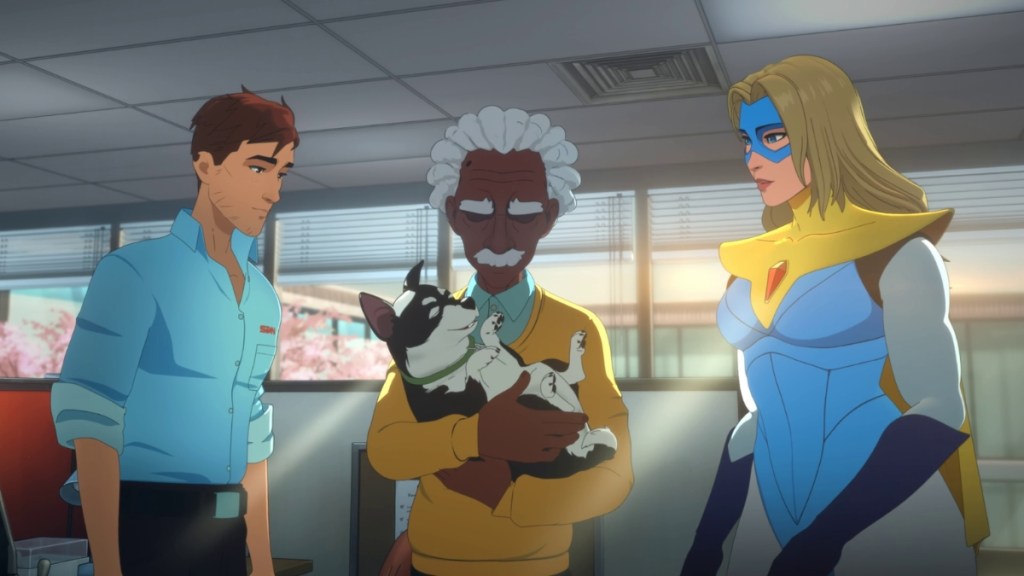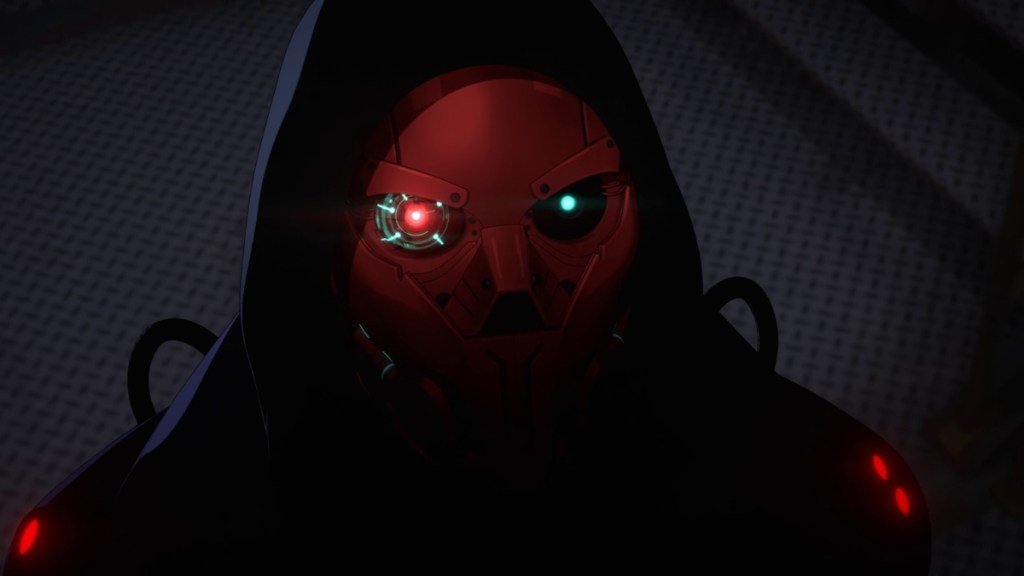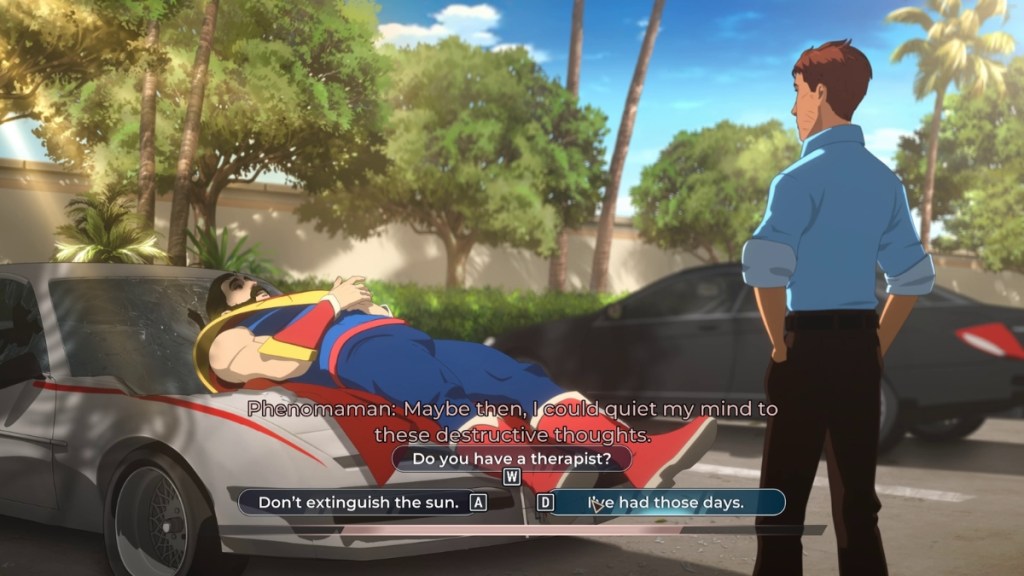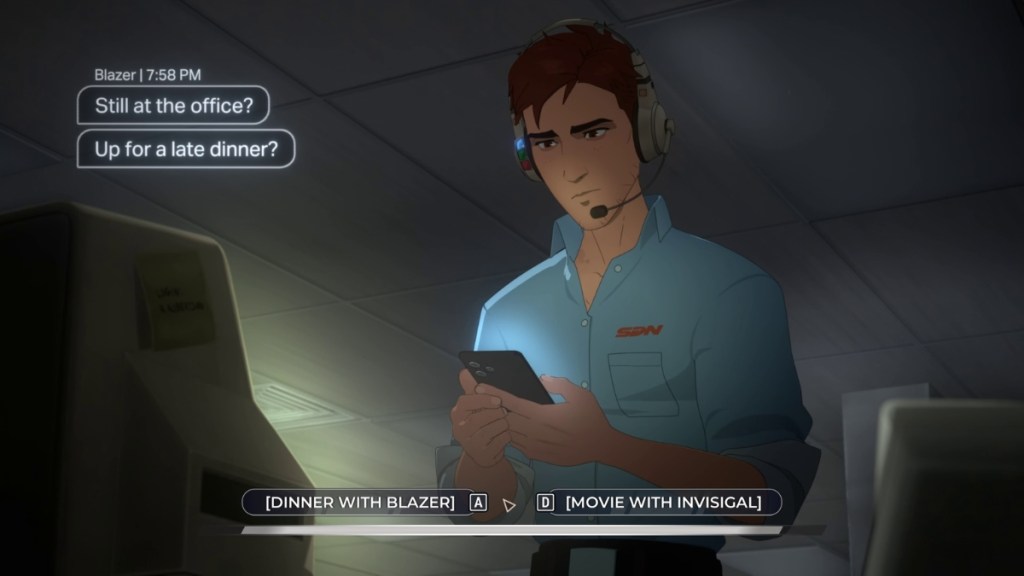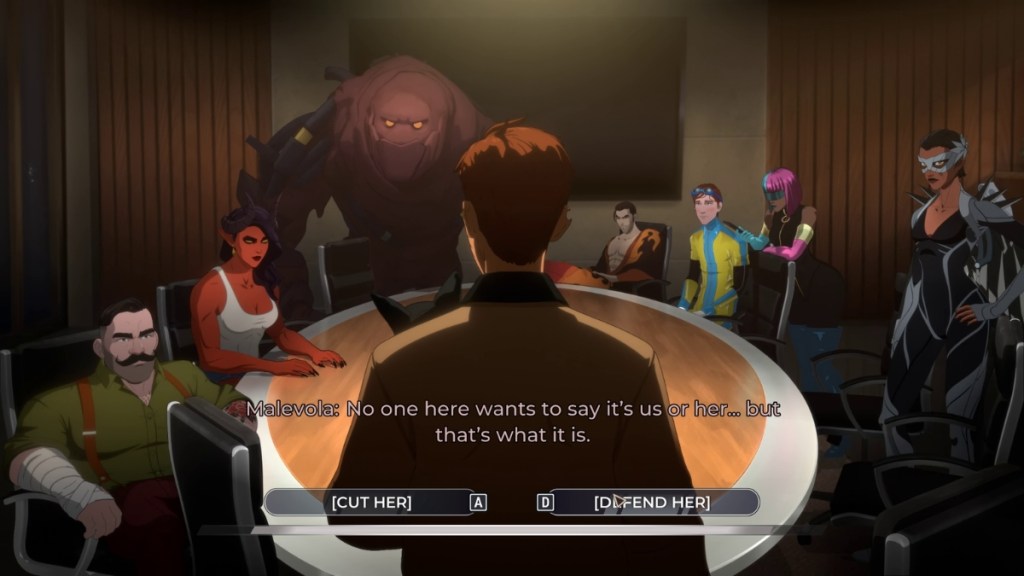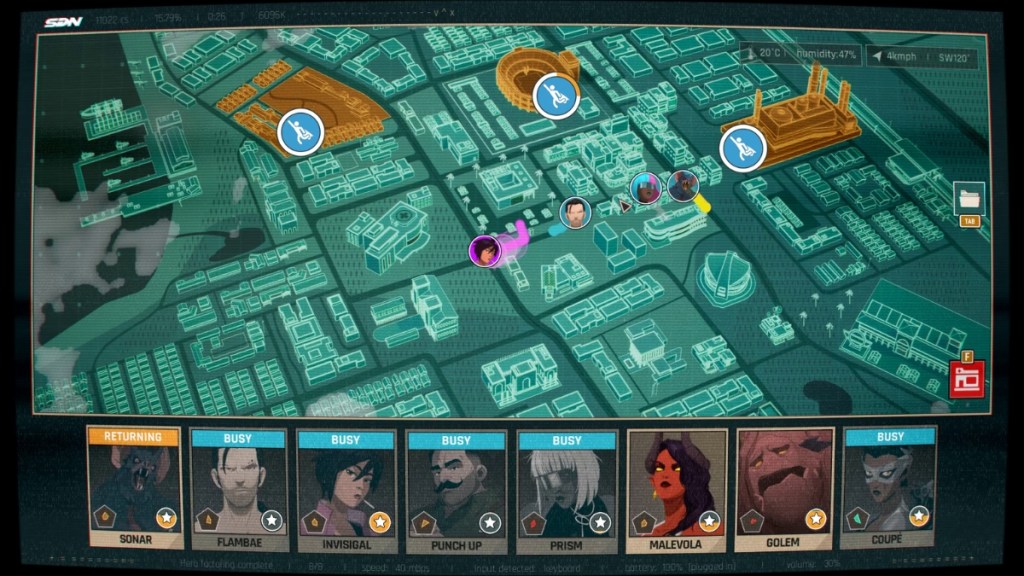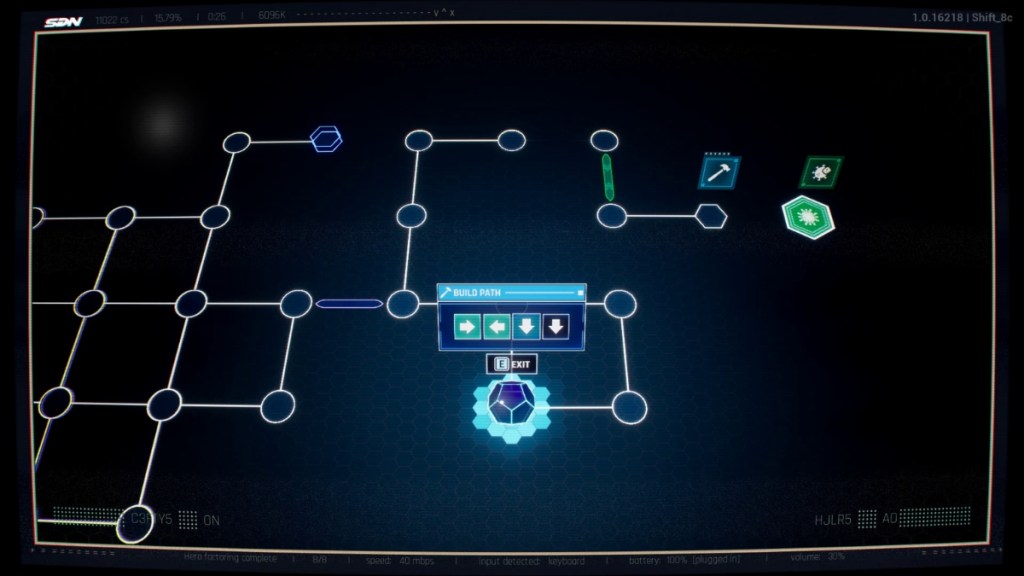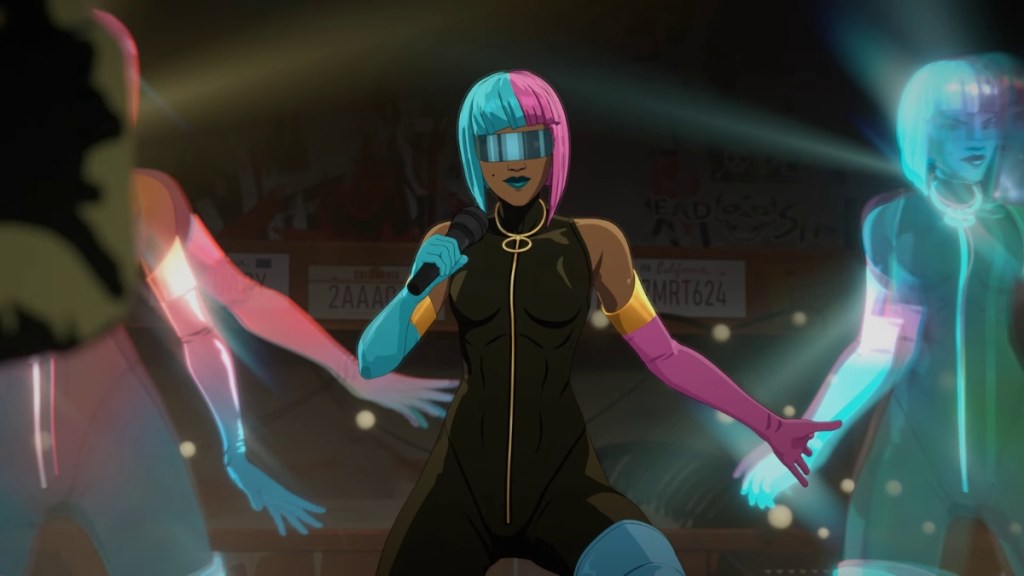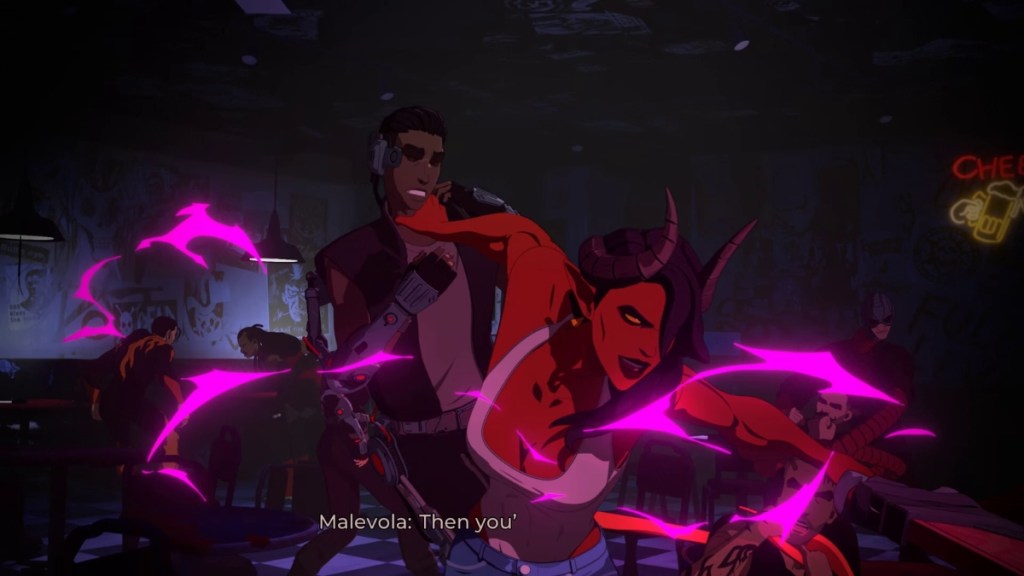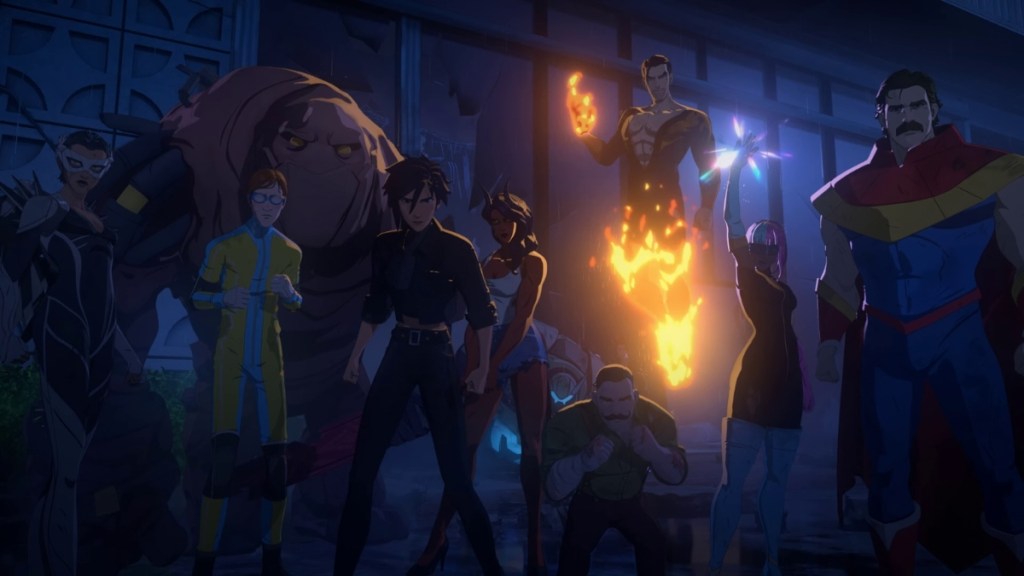
Beebom Score
If single-player gaming is the landscape, then superhero games are the livestock. They keep the single player scene thriving, growing, and alive, not just with your everyday gamers, but with non-gamers who just drop in occasionally to check up on their favorite superhero’s next adventure when the game drops in the market.
Sure, every superhero game almost works on the same fundamentals – they have their origin story, then you gotta save the day with them, find their true purpose, and do whatever you can to hide your alter ego and defeat their archenemy. Then, your superhero flees the scene after the day is saved. But no one talks about the destruction around the city left behind. Nobody talks about who assigns the superhero his/her task or where people are troubled or need help.
I mean, somebody’s gotta file all the paperwork, somebody’s gotta talk to the city council and the mayor, and somebody’s gotta assign those coffee breaks between shifts so your superhero could ‘free’ themselves of the stressful morning they’ve had. That’s where Dispatch comes in – a game that plays like a fever dream of superhero middle management.
The folks at AdHoc Studio – you may know them as the ex-Telltale crew – understood what gaming and the superhero genre as a whole needed: a break from the preachy stuff that Hollywood studios stuff down your throat every couple of years and blockbusters that just don’t shy away from turning a brilliant movie into a sloppy franchise.
They stripped down that formula, saw what it could become, and then executed that vision into a masterpiece. Dispatch isn’t “just good”. It’s the envelope that’s pushed as an invitation towards you to join the revolution of episodic gaming and what it could be in the future as an alternative to TV.
Heroes With More Heart Than Sense, and We Love Them For It
The true heartbeat in Dispatch is its star-studded cast. It’s an ensemble so stacked that it’s less a game roster and more like a cinematic event.


Aaron Paul’s portrayal of Robert Robertson is a study in post-heroic trauma when he’s bankrupt, has retired (temporarily) from his mantle of Mecha Man, and is now stuck in a 9-to-5 loop. Paul doesn’t just voice the character; he inhabits him, delivering a performance of such searing restraint that every word drips with the kind of bone-deep exhaustion born from endless 3 a.m. emergencies and chronic therapeutic neglect.
This is a man running on pure famishment and spite. Paul masterfully contrasts the explosive profanity of his Breaking Bad past with the quiet, authoritative desperation of a former legend who now finds his greatest victory in a functioning vending machine giving him a non-deformed Twinkie.
But the chaos in the game is defined by the Z-Team. A team of ex-villains, now brought into a rehabilitation program by Superhero Dispatch Network (SDN) and banded together as a team of misfit superheroes, all of whom are dispatched to their duties on-call by Robert. Eight heroes, namely Sonar (MoistCr1TiKaL), Flambae (Lance Cantstopolis), Invisigal (Laura Bailey), Punch Up (JackSepticEye), Prism (Thot Squad), Malevola (Alanah Pearce), Golem (Yung Gravy), and Coupe (Mayanna Berin), form the Z-Team, and they have a Suicide Squad-esque vibe going on between them.
Robert navigates through the team like a true leader, than a lone wolf like he was in his Mecha Man. Whether it’s creating an emotional bond with his childhood mentor Trackstar (Jeffrey Wright), who is also a fellow dispatcher at SDN, planning strategic decisions with Blonde Blazer (Erin Yvette), rebuilding his suit with Royd (Tanoai Reed), or mentoring his greatest fan Waterboy (Joel Haver), Paul ties bind with every character in the game and delivers a performance that carries the entire ensemble together.
And to top it off, Robert’s conversations with a true Omni-Man style hero called Phenomaman (Travis Willingham) are just absolutely off-the-hinges. The comedy in the game is absolute gold, and it’s moments like these that it begins to feel like an episode of The Office set in a superhero world
But every good hero needs a good villain, right? Well, Dispatch does throw a villain at you called Shroud (Matthew Mercer), and he’s everything you’d want in a villain. He’s mysterious, he’s smart, and he overpowers Robert quite often with his accurate predictions. The Red Ring (Shroud’s crew) is also full of absolute jokers who can make you laugh just by looking at them or their… ehm, you’ll know it when you play it.
And the heart of the story, Laura Bailey’s Invisigal, is a tragic masterpiece. Her voice work is a masterclass in subtlety, utilizing a fragile register that reminds you she is, fundamentally, vulnerable and breakable. The writing and performance compel you to protect her, even as she makes your logistical life a living hell.
The cast never phones it in; they elevate the material, ensuring that every deployment, every coffee break, and every snapped order is saturated with character history. These are not NPCs; they are your agonizing, unmanageable family.
Choices That Broke the Damn Internet: Invisigal or Blazer?
Dispatch understands that the real battlefield is the human heart. Robert is caught in an exquisite moral vise between Blonde Blazer (the consummate professional, the safe harbor of stability and sensible choices) and Invisigal (the walking red flag of complication, volatility, and consuming passion).
The game’s brilliance lies in its choice-based system, across eight episodes, where if you make one wrong choice and don’t like its consequence of how it shapes your story path, there’s no rewind button. And before I proceed, I shipped Robert and Invisigal throughout my journey and chose her as Robert’s love interest. But later I realised that you don’t just choose a girl, you build your destiny.
Every conversation, every defense of Invisigal to Upper Management, every time you cover her operational blunders—it all accrues weight. You invest real emotional labor, putting your career at risk, and when the relationship finally pays off (or collapses), it lands with the force of a freight train because you genuinely bled for the outcome. The quality is a sharp retort to the shallow romance paths found in most RPGs; both options offer authentic, complex emotional journeys.
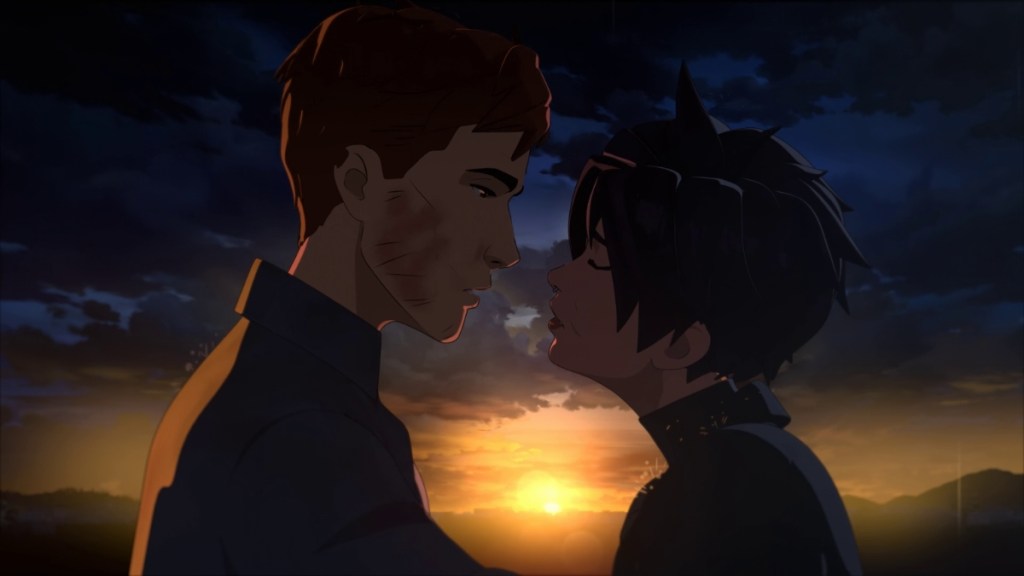
This investment is intensely amplified by the game’s episodic release structure. Ad Hoc Studio consciously ignored binge culture, demanding that players wait seven excruciating days between episodes. This waiting period revived the cultural watercooler effect — the shared anguish of sitting on a pivotal decision (like whether to sacrifice a district or risk a hero) while the community collectively loses its mind. It gives the narrative room to breathe, allowing your anxiety over who you sent into danger to compound, ensuring that the next episode’s tension is exponentially higher. This is a narrative design that truly understands impact.
A Gameplay That Hugs You, Slaps You, Then Hugs You Again
The structural genius of Dispatch lies in how the Dispatch System acts as the game’s primary antagonist. It is a masterclass in controlled chaos — the most intense strategy game disguised as a soul-crushing management sim.
You sit at Robert’s desk, facing a relentless torrent of emergencies. The mission descriptions are deliberately, cruelly vague: “Locate Stolen Art,” “Kaiju Alert,” “Vang Go Opening.” You are forced into emotional triage, matching volatile personalities to vague threats while managing finite resources. You are constantly engaged in impossible calculations and split-second decisions because you never have enough heroes.
The game forces you into a brutal bottleneck simulator. Your heroes require travel time, mission time, and mandatory rest periods (the game hilariously enforces labor laws). If you commit your two heavy hitters, Golem and Punch Up, to a routine rescue, and a Shroud-level threat drops three minutes later, you are staring at an empty bench and a red map of disaster. The game chokes you with scarcity, making every decision a sacrifice. Who do you send? Who do you hold back? Who do you leave hanging?
The consequence is a narrative driven by failure and necessity. You see the unchecked escalation of missions, the civilian losses, and the loss of hero morale. This intentional difficulty is the entire point — it puts you directly in Robert’s head, making the anxiety over resource allocation feel more tense than any traditional boss fight. Even when Robert shows off his hacking skills, the puzzles are pure joy to solve and feel rewarding.
Moreover, a game like Dispatch is extremely easy to understand, to play, and definitely something that’s accessible and enjoyable to a non-gamer. AdHoc made a game for not just gamers or superhero fans, but for everyone out there who loves a good story. It is a brilliant systemic achievement, creating empathy through overwhelming, stressful logistics.
Animation That’ll Make You Say “Holy S***, That’s Crisp”
A game with this level of creative vision demands visual excellence, and Dispatch delivers with unapologetic fidelity. The aesthetic is often described as Western Anime with high kinetic energy —reminiscent of the best work from studios like Studio Trigger, featuring bold lines and colors that punch you directly in the eye.
My Setup:
CPU: Intel i7 14700K 3.40 GHz
CPU Cooler: CORSAIR H150 RGB 360mm
Motherboard: Msi Z790 Pro Wifi
GPU: Gigabyte RTX 4060 Ti 16GB
RAM: Crucial (2x16GB) 5200MHz DDR5
SSD: Kingston 3 TB NVMe SSD
Monitor: 1440p @ 160Hz
The animation quality is exceptional. Character movement possesses genuine weight and momentum: when Golem lands, you feel the bass; when Flambae unleashes fire, it moves with the organic, consuming chaos of real flame, not predictable particle effects. Of course, you don’t see these heroes in action until the last three episodes, and especially the finale, but not while you’re dispatching them at your desk.
Facial animations are expressive and subtle, capturing micro-expressions that add layers of meaning to Paul’s exhausted delivery. Crucially, the technical execution is flawless. There are no stutters, no hitches, and virtually no loading screens.
This seamless, uninterrupted flow is essential when you’re frantically assigning heroes in real-time. The optimization is a masterclass in craft, ensuring that the interface remains instantly responsive even when the screen is full of particle effects and animated chaos. The visual precision serves the artistic vision, making the game an immersive experience that never breaks the spell. Dispatch proves that visual ambition and technical stability are not mutually exclusive, especially when trying to juggle between 25 FPS cutscenes and 60 FPS gameplay.
Verdict – Clock Me In, I’m Not Leaving the Z-Team
Dispatch isn’t just a game — it’s a statement of glorious intent. In a landscape flooded with comfortable repetition and the endless churn of sequels (like another open-world sandbox full of f**king climbing towers), Dispatch dares to be something more. It dares to feel.
What begins as a clever experiment transforms into a masterclass in narrative orchestration, with a brilliant soundtrack and meaningful choices, revitalizing a genre many of us had quietly accepted as dead. Every weekly drop becomes a cultural event, every choice a lingering, unbearable weight. There’s a sincerity here — an intentionality that roasts the latest corporate-mandated, cookie-cutter release, reminding us of the old-world craftsmanship that modern gaming so often sacrifices for spectacle.
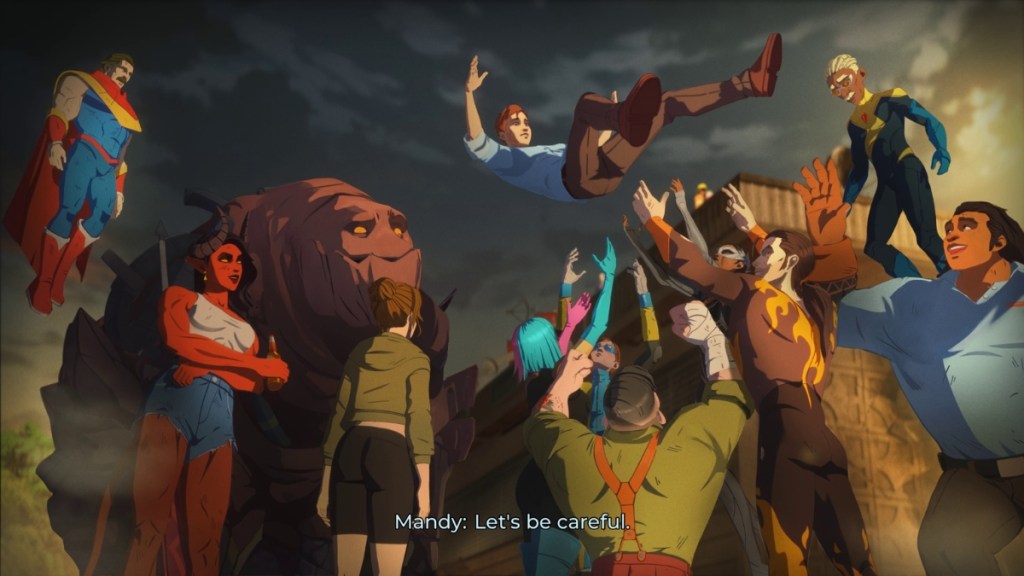
For this reason, deserving a perfect score, Dispatch is the definitive piece of evidence that the choice-based episodic genre still has the capacity to surprise, to innovate, and to touch something deeply human. It’s a structural experiment that turns resource management into emotional blood sport. It’s a world that holds you, challenges you, and ultimately changes you. By the time the final moment lands, you know you’ve experienced something singular — something bold, beautiful, and absolutely unmissable.
